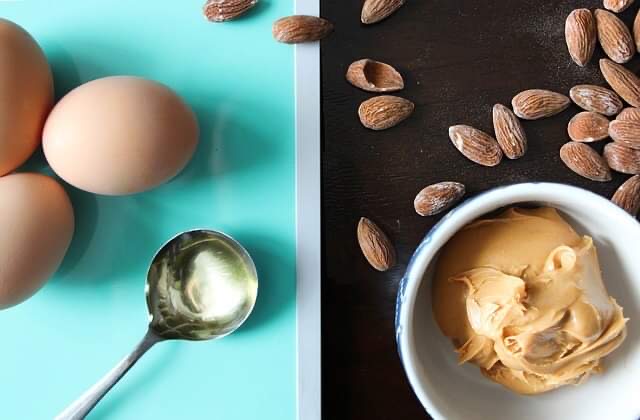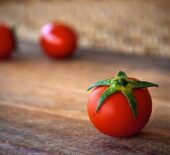You are not alone if you have neve heard of the nutrient choline. This under-rated nutrient plays many essential roles throughout your lifetime. The important of choline starts during infancy. Choline is essential for the development of your central nervous system.
Choline's role in promoting your health and wellbeing does not end at infancy and it has many other important roles. Choline is essential to allow your cells to signal normally as well as for the structure integrity of your cell membranes. Choline also helps your muscles to function normally and is needed to transport lipids from your liver. Choline is a major contributor of methyl groups in the diet. This methyl group donation is vital for many functions in your body including changing the activity of your DNA and protein synthesis.
If you are eating a diet which is deficient in choline you are putting your liver and heart at risk of disease and possibly increasing your risk of brain disorders. Premenopausal women have a special ability to create choline in the form of phosphatidylcholine. This is because of the levels of the sex hormone called oestrogen. Oestrogen induces the phosphatidylethanolamine-N-methyltransferase gene which creates phosphatidylcholine. The reasons premenopausal women have this ability is predicted to be due to the important role choline in infancy.
The effects of a diet limited in choline is seen more detrimentally in postmenopausal women, as well as women with a specific gene sequencing which changes how the phosphatidylethanolamine-N-methyltransferase gene and in men. This is predicted to be due to the low level of oestrogen present or inability to properly activate the phosphatidylethanolamine-N-methyltransferase gene to create choline.
One study found that eighty percent of men and postmenopausal women who ate a diet low in choline resulted in organ damage or muscle dysfunction compared to forty-three percent in premenopausal women. Another study reported that when postmenopausal women received an oestrogen supplement while following a diet low in choline only eighteen percent of these women resulted in organ dysfunction. Compared to seventy three percent of women who did not receive an oestrogen supplement while following a diet low in choline.
This research emphasises the importance of a diet which includes foods that are a good source of choline. A food first approach over supplements is always recommended. Foods provide your body with more than a single nutrient which can support your health. By eating an overall balanced diet, it is possible to meet your daily recommended choline requirements without the use of taking supplements.
Choline is present in many foods and beverages. Sources of choline include eggs, beef, organ meat like beef and chicken liver, wheat germ, dried soybeans, potatoes, kidney beans, dairy, pork, and seafood like cod and tuna.
The recommended daily intake for men and women aged over nineteen years is five hundred and fifty milligrams a day for men and four hundred and twenty-five milligrams a day for women. During pregnancy four hundred and fifty milligrams a day are needed and during lactation five hundred and fifty milligrams a day are needed.
Take home message: Choline is a nutrient which is essential throughout your life. Make sure you are eating a diet which allows your body to meet its daily choline needs for health. The importance of meeting your daily dietary requirements could be seen to be of even greater importance for postmenopausal women and for men.
References:
- Zeisel, S. H., & da Costa, K. A. (2009). Choline: an essential nutrient for public health. Nutrition reviews, 67(11), 615–623. https://doi.org/10.1111/j.1753-4887.2009.00246.x
- Fischer, L. M., da Costa, K. A., Kwock, L., Galanko, J., & Zeisel, S. H. (2010). Dietary choline requirements of women: effects of estrogen and genetic variation. The American journal of clinical nutrition, 92(5), 1113–1119. https://doi.org/10.3945/ajcn.2010.30064
- Zeisel S. H. (2006). Choline: critical role during fetal development and dietary requirements in adults. Annual review of nutrition, 26, 229–250. https://doi.org/10.1146/annurev.nutr.26.061505.111156
- Obeid R. (2013). The metabolic burden of methyl donor deficiency with focus on the betaine homocysteine methyltransferase pathway. Nutrients, 5(9), 3481–3495. https://doi.org/10.3390/nu5093481
- Fischer LM, daCosta K, Kwock L, et al. Sex and menopausal status influence human dietary requirements for the nutrient choline. Am J Clin Nutr 2007;85:1275–85
- Zeisel SH, Mar MH, Howe JC, Holden JM. Concentrations of choline-containing compounds and betaine in common foods. J Nutr 2003;133:1302–7
- Zeisel SH, Mar M-H, Howe JC, Holden JM. Erratum: concentrations of choline-containing compounds and betaine in common foods. J Nutr 2003;133:1302–7
- Choline Fact Sheet for Health Professionals. National Institute of Health Office of Dietary Supplements. https://ods.od.nih.gov/factsheets/Choline-HealthProfessional/








